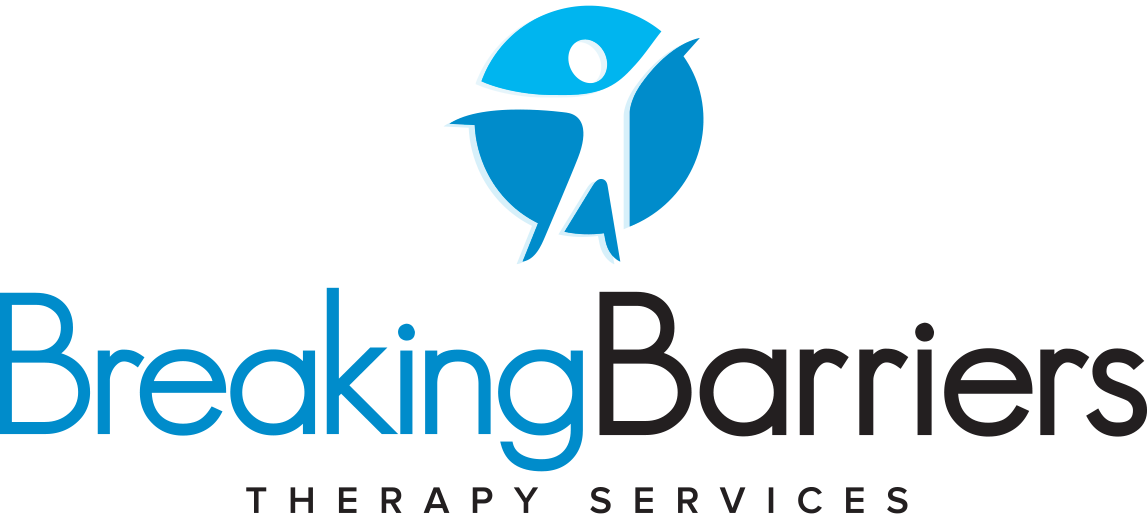
Speech-Language Pathology
Break barriers and make potential possible.
Improve verbal and
non-verbal communication abilities.
Develop skills and strategies to gain
greater independence in daily activities.
Reduce limitations. Improve confidence to more easily engage socially, academically, professionally, or
with peers.
Autism
Brain Injury & Concussions
Pre-school Language
What is Speech–Language Pathology (SLP), and how does it work?
Creative, engaging, and life-changing
Speech-Language Pathology, also known as Speech Therapy, focuses on helping individuals of all ages who experience communication, eating, drinking, voice, fluency, cognition, and swallowing challenges. As an evidence-based approach, exercises and strategies are extensively utilized and customized to the individual's needs to improve their overall quality of life and participation in social, academic, and professional settings.
Social Language
Tongue Thrust Therapy
Apraxia
Fluency
Dysphagia (Swallowing Therapy)
Orofacial Myologist
Information Processing
Articulation (Phonology)
Through carefully structured sessions,
SLP can help with:
Articulation – producing certain sounds or words correctly
Language delays – receptive and expressive language understanding or using language appropriately. Telling stories, asking/answering questions, following directions, sequencing, writing, and reading (dyslexia), auditory processing,
Fluency – stuttering or cluttering,
Voice – hoarseness or vocal nodules, unusual vocal production/sound, puberphonia, aphonia, vocal fold paralysis, coal chord spasm, psychogenic voice disorders, and vocal hygiene for public speaking, cheer, coaching, etc.
Resonance — hyper or hyponasal speech
Pragmatic language — navigating social interactions with peers and adults ( social skills, communicating emotions, self-regulation, selective mutism)
Executive function – planning, organization, attention, time management, task initiation, self-regulation, flexibility, perseverance, self-control, metacognition (thinking about thinking), working memory
Swallow and orofacial myology - The treatment of swallowing disorders prevents aspiration pneumonia, gagging, and increases the tolerance for variation of food textures. Tongue Thrust therapy helps dentition alignment and proper tongue placement during rest and swallowing
And so much more
How We Help
How our Speech-Language Pathologists help make potential possible
Through customized and interactive sessions, we focus on developing the skills that are essential for daily life tasks and meaningful participation in school, at home, at work, or in social environments.
For infants to 18-years, we support both parents and children. We provide parents with the knowledge and tools to best support their child's growth during therapy sessions and in everyday life.
For adults and seniors, whether recovering from an injury, managing a chronic condition or swallowing disorder, or seeking to improve communication skills, our experienced team is dedicated to providing personalized support, strategies, and exercises that will help improve the overall quality of life and navigate daily activities with confidence.
Our strategies are designed for real-world interactions, settings, and situations — school, work, relationships, social circles, and more.
Our dedicated Speech-Language Pathologists create a nurturing and supportive environment where individuals feel empowered to explore their communication abilities. We celebrate their progress, no matter how small, and encourage them to reach their full potential. By setting individualized goals and utilizing evidence-based practices, we ensure everyone receives the personalized care they deserve.
We collaborate with parents, caregivers, educators, and other professional disciplines. We offer in-house collaboration with ABA Therapy and Occupational Therapy.
Together, we break down the walls that limit potential, creating a supportive network of compassion, understanding, and growth. Allow yourself to take a deep breath, embrace hope, and trust in the transformative power of Speech-Language Therapy.
We are here to support and guide
you every step of the way.
Our Approach
We offer in-clinic sessions supported by dedicated therapists who are highly trained and up-to-date with the latest evidence-based practices in therapeutic care.
Initial evaluation
We conduct an initial evaluation to assess the individual's strengths, challenges, and specific goals. This assessment involves a series of formal and informal measures to gather information about medical history, current abilities, and limitations.
Treatment plan
Goals are established based on the evaluation and individual/parent or guardian interviews. Once a plan is outlined, the interventions and strategies will be customized to the individual's needs. It may include therapeutic activities, exercises, sensory integration techniques, emotional regulation, cognitive training, and more.
Progress monitoring & adjustments
Speech-language pathologists continually evaluate the individual's progress to determine the effectiveness of interventions and ensure meaningful gains in achieving goals.
Collaboration
Effective communication with other healthcare professionals, educators, caregivers, and family members is critical to delivering the best possible care. If required, we ensure support and guidance to those most involved in the individual's life.
Transition Planning
As an individual approaches goal mastery, the frequency of services may be reduced. The ultimate goal is independence. We support this transition on an individual basis, slowly weaning the individual out of services and into independence. The Speech-language pathologist assists in this transition and provides recommendations for maintaining progress.
3 Key Benefits of Speech-Language Therapy
One 1
Empower communication and independence:
Speech-language pathology serves as a fundamental tool for conquering various aspects of communication such as speech clarity, language comprehension and expression, stuttering reduction, improving voice quality, and honing social communication skills. This enables individuals to express themselves fully, fostering deeper connections with others and unlocking the power of their unique voice. Empowered with these skills, individuals can more easily participate in daily life activities with confidence and autonomy.
Three 1
Social and Emotional Mastery:
Speech-language pathology goes beyond verbal expression to enrich social and emotional well-being by fostering pragmatic language skills. These skills enable individuals to navigate social situations with grace, form enduring bonds and build a foundation of confidence and self-esteem. Accessing these skills sets the stage for shaping a future equipped to engage in fulfilling social experiences, relationships and lasting connections.
Two 1
Educational Excellence Exemplified:
Whether you are an adult learner or a child we help pave the way for success in the academic arena. Through tailored support and guidance, speech-language pathology helps facilitate academic success by addressing language barriers associated with reading, writing, narrative skills, and comprehension.
Ready to join our village?
3 simple steps to get started:
STEP 1
Schedule a Free Consultation
Contact us by phone or email to discuss how we can help decide the next steps forward.
STEP 2
Connect & Plan
Meet with our expert therapist for an assessment so we can customize an individual plan for your child.
STEP 3
Explore Possibilities
Follow the guidance and plan we create together. Start seeing positive changes and celebrate every success!

“We love Breaking Barriers therapy. We have been through multiple speech therapists over the past three years and none have measured up in the same way. Britney and Nicole have worked with our son for the last few months and we have seen great progress in our son's ability to communicate. Furthermore, we can easily see that they both value our son and are so encouraging to him. Our son enjoys speech therapy and we are so happy that Breaking Barriers can provide the therapy
that he needs.”
Jessica N.
“We looked at several places and read a lot of reviews, trying to find the perfect place to help our son with his speech impediments. We ultimately decided to go with Breaking Barriers, and I am so grateful we did. They truly care about the kids.”
Bradley T.
Frequently Asked Questions about ABA
-
Yes. We do. Please see details on Insurance & Grants.
-
Yes. A pediatrician referral will be necessary for all three services if you plan to use insurance. If you have concerns, you can be proactive by talking to your doctor today. They may email or fax the referral to us office@breakingbarrierstherapy.com or 8013418724
If you are utilizing our private pay services, a physician referral is unnecessary; however, if you choose to use insurance, you will need a physician referral.
-
Whether you contact BBTS because you’ve received a doctor’s diagnosis or you’re concerned about the way your child is developing, communicating, or behaving, BBTS is happy to offer a complimentary in-person or over-the-phone consultation.
During the consultation, you are given the opportunity to discuss your concerns and services you are interested in. After learning about your needs, BBTS will walk you through the therapeutic process and answer all your questions.
We will also review the logistics of costs, insurance, and grants (if applicable). An insurance benefits check reveals the projected costs, so there are no surprises. If it’s determined that your child can benefit from speech, occupational, or behavior therapies, BBTS will schedule an evaluation.
-
During the evaluation, you and your child (or the person) will meet with the evaluating therapist. The therapist will gather information through guardian interviews, formal and informal measures, and strategic play (where appropriate). During this time, they will discuss your goals and concerns. Once the evaluation is complete, the therapist will write an evaluation report of their findings and develop a treatment plan.
-
The length of time an individual requires therapy varies from case to case; however, it is the goal at BBTS to provide the skills required to succeed. The ultimate goal is to fade out therapy as soon as appropriate.
-
Session frequency will vary between services and is customized to the child’s needs. After an evaluation, the therapist will provide you with a prescription for therapy, indicating how often the therapist deems it appropriate for the individual to make effective progress. Frequency is reassessed often throughout the therapeutic journey.


















